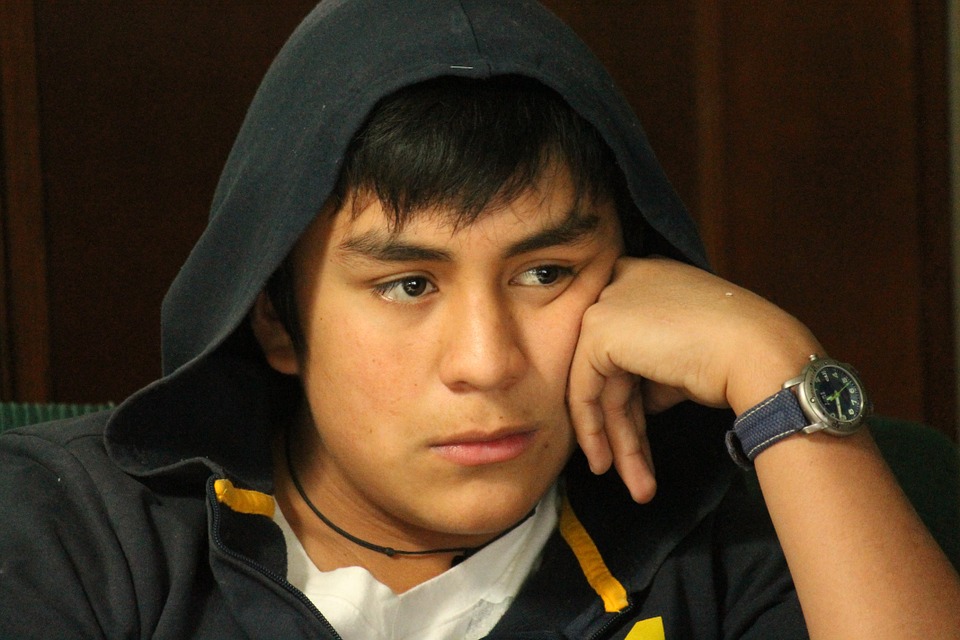Gangs

Are you worried your child might be in a gang?
A gang is usually considered to be a group of people who spend time in public places that see themselves (and are seen by others) as a noticeable group, and engage in a range of criminal activity and violence. They may also identify with or lay a claim over territory or be in conflict with other, similar gangs.
Why do young people want to belong to a gang?
Here are some of the reasons young people might give for being in a gang:
- identity
- respect and status
- a sense of belonging/to gain friends
- excitement
- they think it will make them safer
- they think they will make money
- peer pressure
Bonding and group identity are an important part of social life and growing up. But when a bond is based around crime, violence is usually not far away.
Children and young people involved with, or on the edges of, gangs might be victims of violence or they might be pressured into doing things like stealing or carrying drugs or weapons. They might be abused, exploited or put into dangerous situations.
Signs to look out for
Gangs often leave signs of their presence and your child might adopt some of these signs; either as a member or as an associate of a gang. Any sudden changes in your child’s lifestyle should be discussed.
Suspicions that your child is involved in a street gang are not necessarily proof, though some indications might be:
Behaviour
• Withdrawing from the family
• Loss of interest in school
• Dropping positive activities like sports
• Changes in behaviour reported by the school
• Unexplained extra money or new possessions e.g. clothes, trainers, jewellery, computers / games, mobile phones
• Staying out late without permission
• Increasingly secretive or vague about their whereabouts, activities or friends
• New nickname
Visual signs
• Dressing differently, perhaps in a particular style or colour
• Unexplained physical injuries
• Using tags or graffiti on books / possessions
• Using hand signals to speak with friends in ‘code’
Gangs will often have profiles on social or networking websites like Facebook or Twitter.
What can you do?
There are things you can do to help stop your child from being involved in gangs.
- Talk to your child and listen
- Encourage them to get involved in positive activities and to think about their future employment
- Get involved in your child’s school activities
- Know your child’s friends and their families
- Always know where your child is and who they are with
- Help them to cope with pressure and how to deal with conflict without use of violence
- Speak to them about the serious consequences that occur from violent or illegal behaviour. Help them to understand the dangers of being in a gang and find constructive alternative ways to use their time
- Keep lines of communication open
- Be aware of what your child is doing on the internet
- Look for ways of disciplining children that do not involve harshness, anger or violence
- Work with other parents and schools to watch their behaviour
- Contact local voluntary organisations that provide mentoring and other support for young people
- Talk about your child’s behaviour with their school and other parents
Getting help and support
If your child is already involved in a gang, they may not want to talk about it or be scared. It is important that they know you want to listen and support them. Make sure they know they have a choice.
- Stay calm. Ask questions, but listen too. Don’t be afraid of confrontation, but try not to approach them with anger and accusations. Try to understand the situation from their point of view and why they have joined the gang. Ask them what you can do to help. Try to agree about what they should do next. Work with them to find solutions and choices.
- Seek help from local community organisations or youth services. They can offer specialist support and programmes to help them leave the gang. Contact local support networks such as faith groups or neighbourhood police officers connected to your local school.
There are support groups and specialist agencies you can talk to such as St Giles Trust, Safer London Foundation, and Gangsline or you can call the NSPCC helpline to get advice how to help your child and for details of more organisations in Lambeth.
Suggest to your child to call Childline on 0800 1111 for support and advice - it's a free 24/7 confidential helpline for children - or they can access more information about gangs on the Childline website
The following website contains information to help parents identify and respond if their children are affected by gangs https://www.gov.uk/government/publications/advice-to-parents-and-carers-on-gangs

